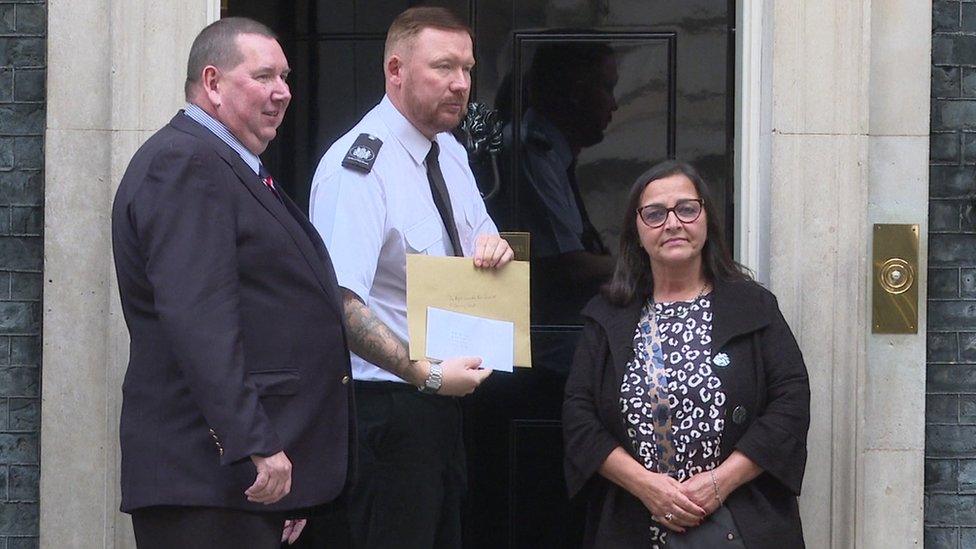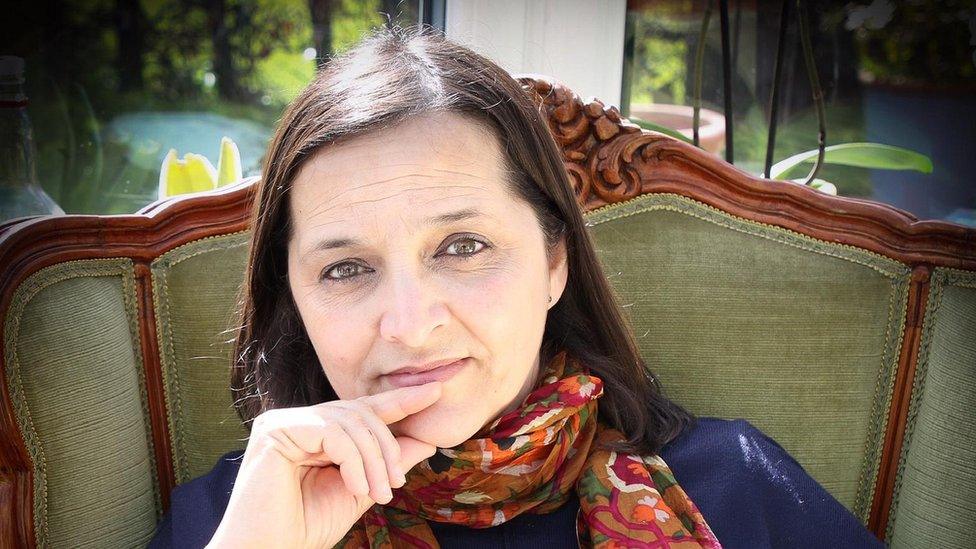Call for PM to introduce anti-terror Martyn's Law 'without delay'
- Published

Martyn's Law is named after Martyn Hett, who was among 22 people killed at a concert
The mother of a man killed in the 2017 Manchester attack has urged Rishi Sunak to introduce a law to ensure stronger protections against terrorism in public places "without further delay".
Known as Martyn's Law, the legislation is named after Martyn Hett, one of the 22 people killed at the end of an Ariana Grande concert in May 2017.
His mother Figen Murray has delivered a letter to Downing Street, asking the PM to "make this legislation happen".
No 10 said it was being reviewed.
Ministers published draft details of Martyn's Law in May after years of campaigning by Ms Murray.
In the letter she said: "I have made it my mission to do everything possible to prevent other parents, families and friends going through the devastating experiences that my family has endured.
"I initiated the campaign to introduce Martyn's Law because I wanted to work with the government and security industry to introduce legislation that would better protect the public from terror attacks."
Her letter to the Prime Minister comes after the Home Affairs Select Committee warned in July that the draft Terrorism (Protection of Premises) Bill, also known as Martyn's Law, would put small businesses and organisations at risk of closure and fail to "make a significant impact" on preventing attacks.
But Ms Murray, who received an OBE for services to counter terrorism in June 2022, claims the committee reached a "dangerous and misguided" conclusion after scrutinising the draft legislation.

Figen Murray delivered the letter to Downing Street
"Martyn's Law will make us all safer without changing our way of life," she added.
"It is not meant to restrict us but empower us by making the general public more resilient to such attacks."
She said the government committed to introducing the legislation in 2019 and that it has "strong support from the public, businesses, the security industry and across Parliament".
"Until this Bill is introduced, members of the public remain at a greater risk from terror attacks," she added.
In July, the Home Affairs Select Committee found the Bill, which has different standards based on venue capacity, would require a local village hall to have certain safety precautions while an outdoor market in a city centre would not.
It said after looking at the draft it had "serious concerns" about the financial burden of requiring venues to have potentially costly safety measures in place.
But Ms Murray told Mr Sunak "the draft Bill is proportionate, so that smaller venues need only take very basic steps".
She added: "This is particularly the case in places like village halls, community centres and other rural locations that people may think are immune from attacks.
"Sir David Amess was killed at such a small venue and the late Jo Cox MP was also killed in a more rural setting.
"Watering this Bill down by removing smaller venues, as some have suggested, would create dangerous loopholes that terrorists could exploit.
"It is my firm belief that a terror attack can happen at any time, anywhere, and in any place."
A government spokeswoman said: "We are grateful to Figen Murray and the Martyn's Law campaign for their support in the development of this vital reform.
"We are committed to improving the security of public venues, to ensure the public can go about their lives freely and with confidence.
"In May, the government published the draft Terrorism (Protection of Premises) Bill and submitted it for pre-legislative scrutiny by the Home Affairs Select Committee. "
He added that the government was "carefully reviewing" their recommendations "to ensure the implementation of Martyn's Law is properly understood and effective".

Why not follow BBC North West on Facebook, external, X, external and Instagram, external? You can also send story ideas to northwest.newsonline@bbc.co.uk, external
Related topics
- Published27 July 2023

- Published6 June 2023

- Published3 November 2022
